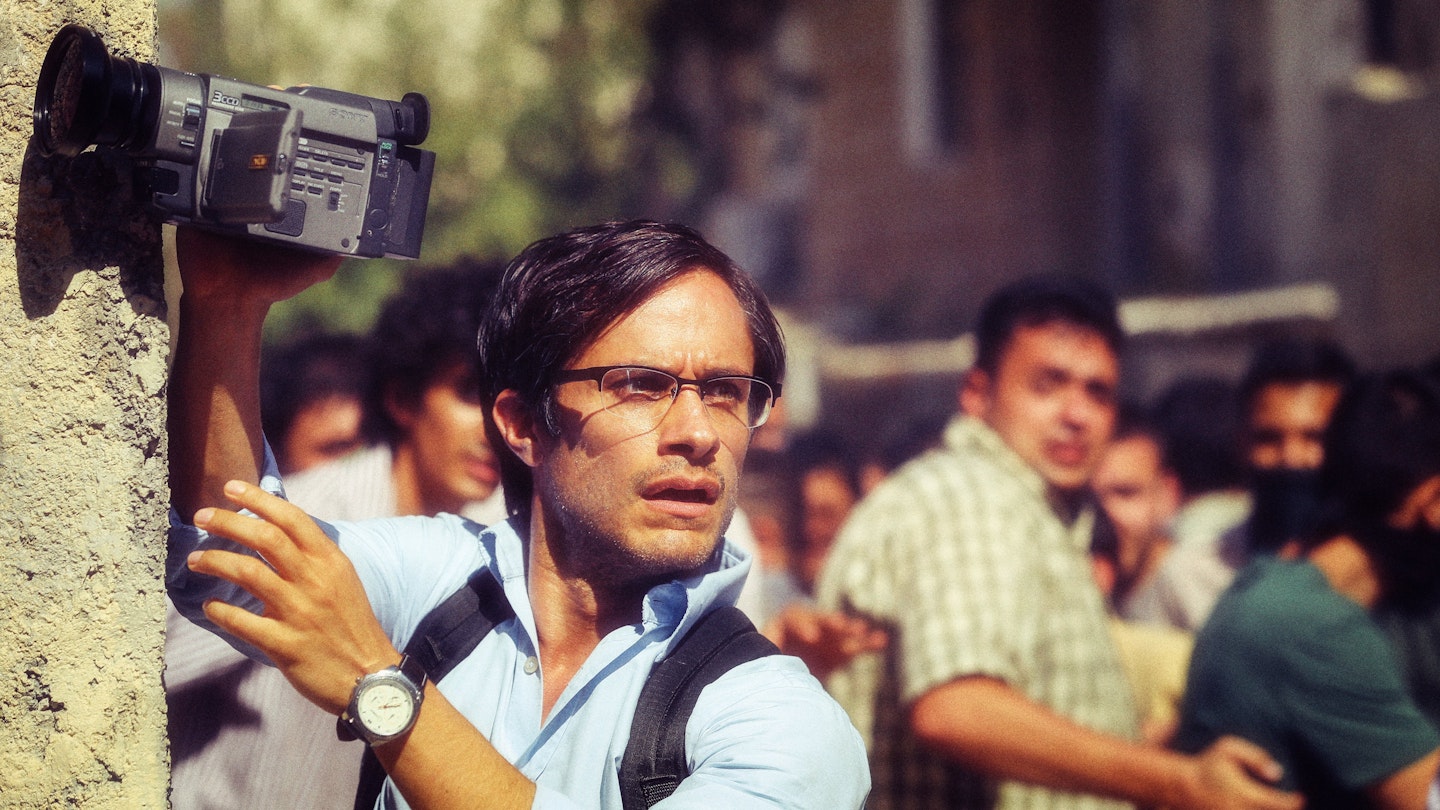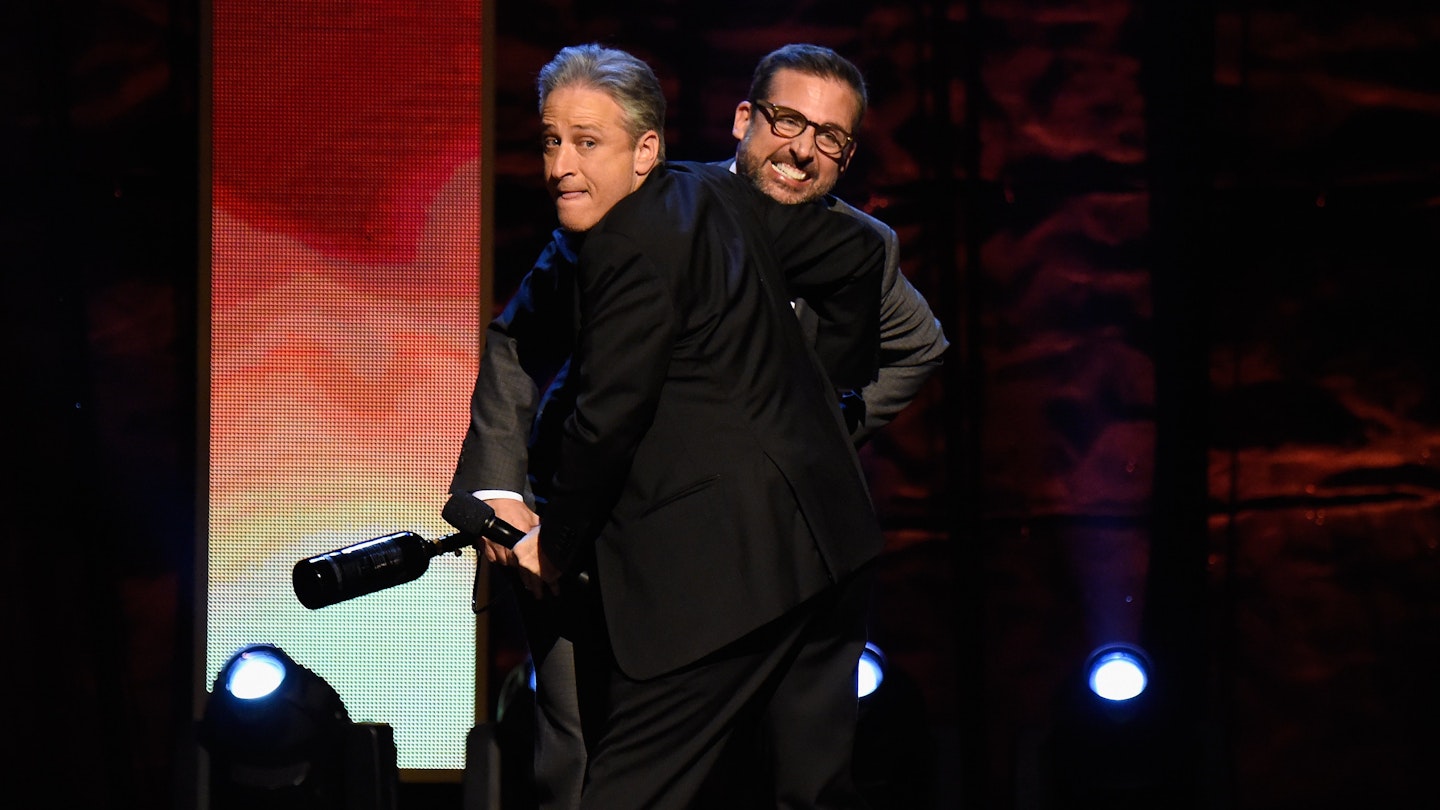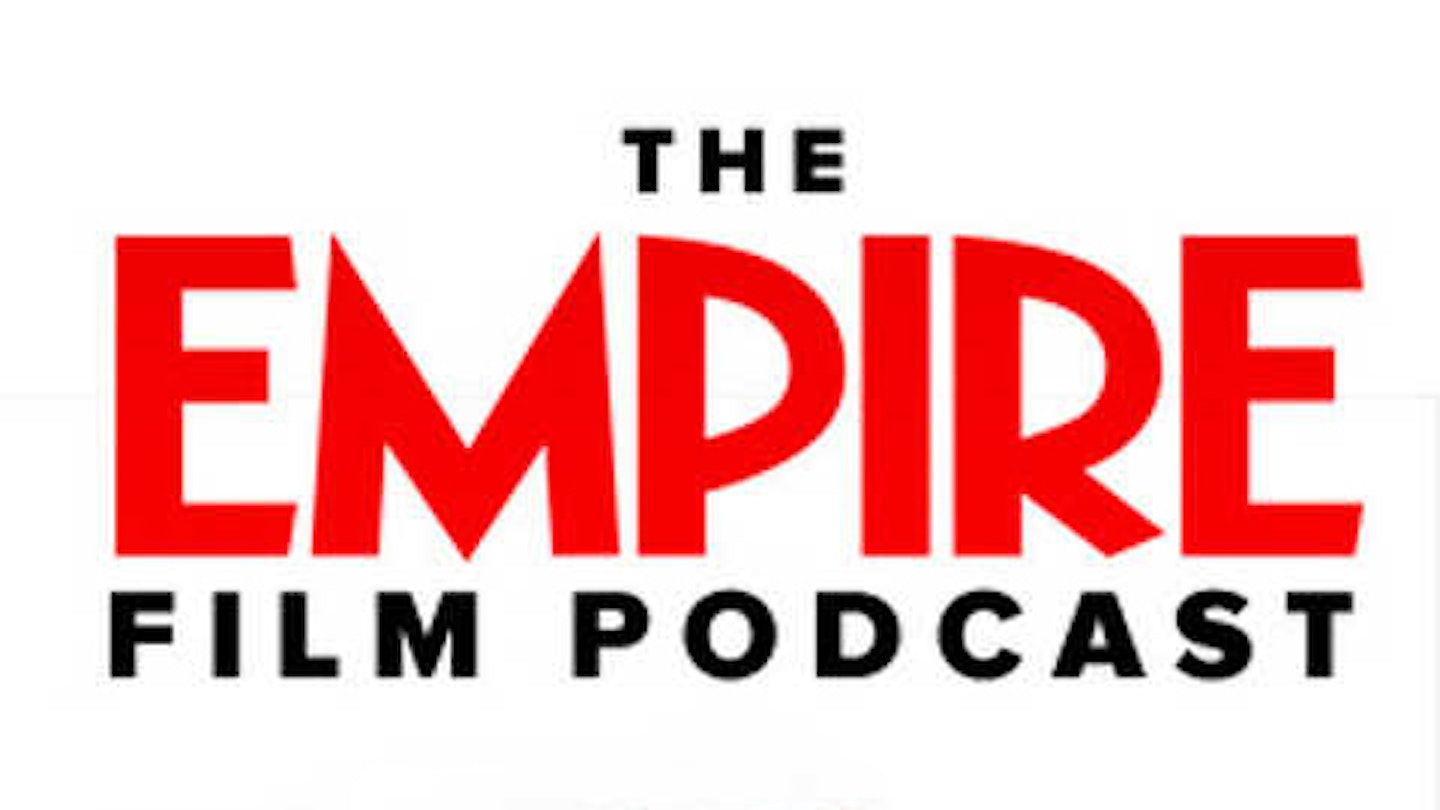It’s hard to make a film about unjust imprisonment and torture without resorting to broad, black-and-white depiction of good and evil because, well, torture is bad. Here, by focusing on a single tale rather than sweeping condemnation, Jon Stewart introduces shades into the story of a journalist imprisoned as a spy.
Before we go any further, full disclosure: Empire appears in Rosewater on three occasions, with our May 2009 issue playing a key role in the arrest of journalist Maziar Bahari (our apologies, Mr. Bahari). It’s not just his impeccable taste in reading material that makes Bahari likable. As played by Gael García Bernal, he’s a youthful figure, fired with optimism by the groundswell of protests that greeted the 2009 re-election of Mahmoud Ahmadinejad. But he is not naive, sufficiently wary to self-censor his reports when he sees things that might endanger his local sources.
As part of Bahari’s reporting, he appeared on The Daily Show with Jon Stewart, interviewed by Jason Jones in a segment where Jones pretended to be a spy. The Iranian authorities didn’t get the joke, and locked Bahari up for months of interrogation, solitary confinement and beatings. A family history of dissent made him an object of suspicion, but visions of those imprisoned relatives help to sustain the young father-to-be. Meanwhile, his pregnant wife (Claire Foy) works to free him from London and his mother (Shohreh Agdashloo) keeps vigil in Tehran.
While the first act is effectively a bluffer’s guide to Iran and its politics, the real focus is on the clash — of cultures, of values, of fists — between Bahari and his interrogator, Javadi (The Bridge’s Kim Bodnia). Javadi, whose face Bahari barely sees, is a thug desperate to impress his superiors and be promoted from mere heavy to real investigator. This is no fiery iconoclast: off-guard, he’s a rather sad figure, frightened by the world and terrifyingly ignorant of it.
We therefore get a remarkably nuanced story. The Iran we’re shown is a vibrant, hopeful place, Stewart mixing archive footage with judicious recreation. He goes to considerable lengths to emphasise the many ways in which the West caused Iran’s turmoil, to distinguish the people from their ruling class, and to show the many reasons why Iran might reasonably be wary of high-handed outsiders.
The film’s Bahari isn’t flawless, showing the same Western arrogance of which he is accused, but his great strength as a hero is his knowledge of what’s going on, contributing both to his early conviction that he can talk his way out, and his later despair as he faces the real possibility of death. This may have begun as a sort of exculpation for Stewart, a debt to an unjustly accused colleague, but the same idealism and wariness of power that he displayed as America’s satirist-in-chief make this both clear-eyed and surprisingly funny in its treatment of prisoner and jailor. In the end, it becomes a powerful and moving story of the ties that bind us all and the fears that keep us apart.



